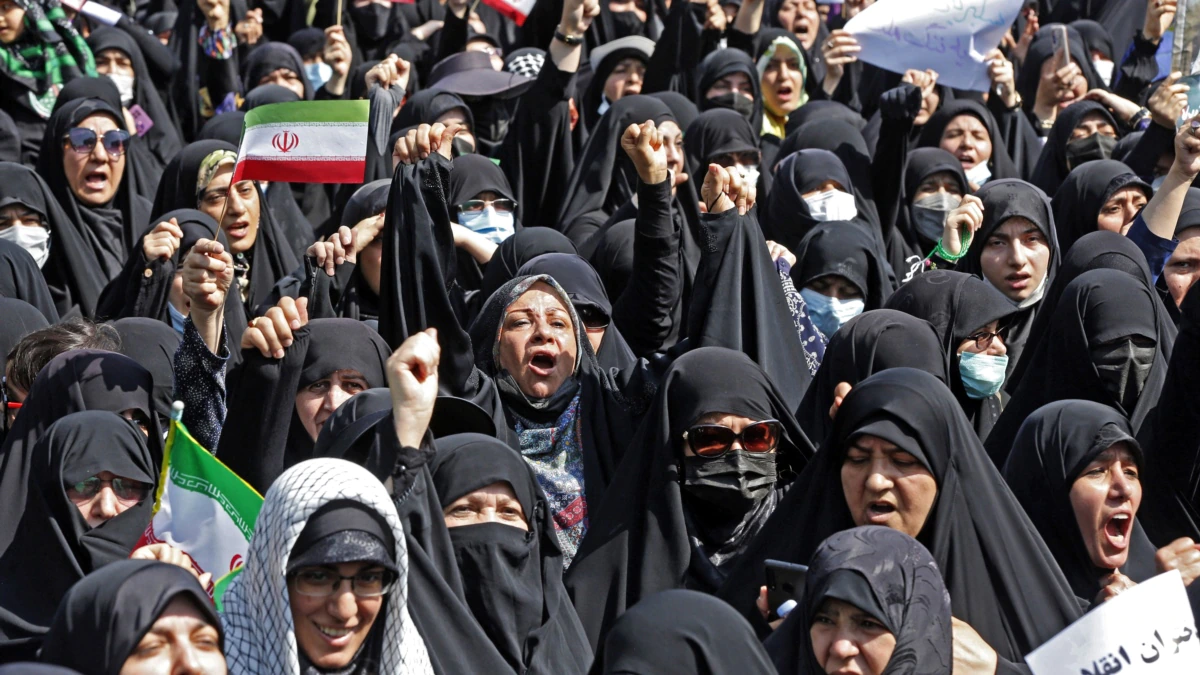Iran(Transatlantic Today) -In recent weeks, the killing of Mahsa Amini while in custody for not “wearing her hijab improperly” has outraged Iranians. This has sparked a new round of nationwide protests. Iranian women are fighting against the state-imposed dress code. After Ayatollah Khomeini was declared the official leader of the Islamic Republic, he addressed the issue of women’s clothing. He has stated that women will only be allowed to enter their workplaces if they complied with the compulsory hijab. The Iran Hijab protest has taken a new turn and has ended up becoming a religious as well as a political issue.
Iranian Women Have Rejected The Imposition Of Compulsory Hijab
Iranian women took to the streets and protested about the violation of their freedom of choice. The protesters were also attacked by pro-Revolution forces that have now become the morality police. This organization arrested Mahsa Amini last month. There were also early protests regarding the issue of the state-imposed dress code. Iranians had rejected the imposition of compulsory hijab. Many well-educated Iranian women have lost their jobs because of their involvement in that pioneering protest.
Iran Hijab Protests Have Become A Political Issue
Many Iranian women have lost their right to gain higher education or return to work. They have been following an “inappropriate dress code, and are not allowed to enter the Universities and their workplaces. The death of Mahsa Amini on September 16, has prompted the spread of large-scale protests in Iran. This movement has expanded to large and small cities outside Tehran.
The protests intensified, and the videos of women cutting their hair and burning their hijabs spread. Iranian women have been showing an expression of anger and it is directed toward the morality policy responsible for Mahsa Amini’s death. They have been rejecting the policy of compulsory hijab more generally. Their act of hijab burning, and hair cutting has launched a rebellion against government-imposed dress codes.
Iran Hijab Protest: Fight For Rights In Iran
Iranian women have been struggling for decades for freedom of choice. The recent hijab protest could lead to a positive change and might present a unique opportunity to women for long-awaited reforms. The killing of Mahsa Amini while in custody has outraged Iranians and sparked a new round of nationwide protests.
The state-imposed a dress code for women and they had to follow the code to seek employment, education, and access to public spaces. This dress code also impacted Iranian men as they have been banned from wearing short sleeves, jeans, and bright colors. The state has used its power to impose measures of control on the citizens’ public and private lives.
Iran Hijab protests are intensifying after the government has imposed a lot of restrictions on the people. There is a ban on mixed-sex weddings and birthday parties. People are also prohibited from listening to music and watching foreign movies. Owning dogs has also been banned in the state. Women have been fighting for their rights because they believe that wearing a hijab or not should be their choice.
Read More: Who Is Funding Fake Reports And Statistics Against Qatar World Cup 2022
New Generation In Iran Is Rejecting The Strict Islamic Laws
Many of the early battles between the state and its citizens have remained unresolved. This has impacted the generations of Iranians as the laws have been ultimately restricting their personal choices. Thus, the death of Mahsa Amini has exposed the collective grievances held by the Iranian public. Women burned their headscarves and the protests have been active and held rapidly across the country. This is a symbol of their rejection of the state’s control over their private choices.
Recently, videos of violent arrests of women by the morality police in Iran are also circulating among Iranian users. The Iranians believe that the current dress code is a sign of social and political backwardness. The Revolution features Iranian women—with and without hijab. Women want to interact freely in public spaces and want to live their life according to their will.
Across the world, the hijab is a personal religious choice. Women in different parts of the world wear a hijab of their free will. However, it was transformed into a symbol of oppression in Iran. The current rejection of the hijab has shaken the political scene of Iran. The Iranian protesters don’t necessarily equal a rejection of Islam, and they are not denying Islamic values. The protests are representing the anger and frustration of the people who have been deprived of their basic freedom of choice for decades.


























